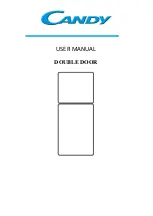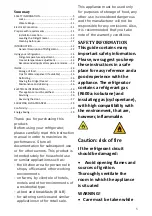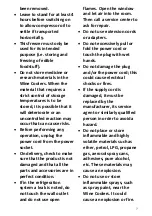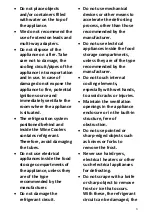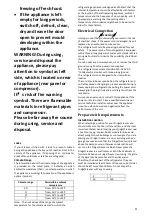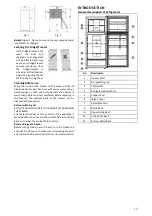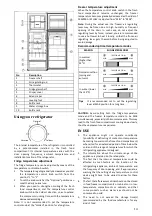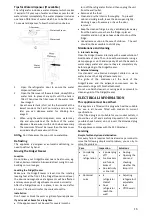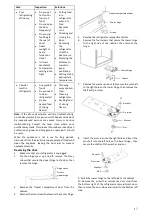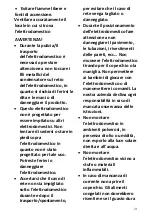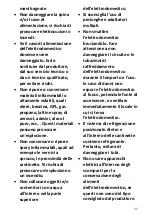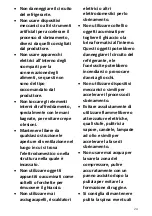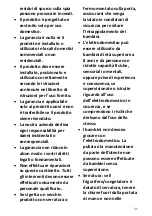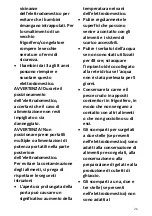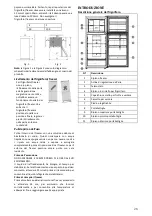
14
No
Description
1
Freezer shelf
2
Air regulating rod
3
Thermostat
4
Fridge glass shelf
5
Crisper cover
6
Salad crisper
7
Leveling foot
8
Bottle rack
9
Water storage box
10
Bottle rack
Using your refrigerator
The internal temperature of the refrigerator is controlled
by a potentiometer installed in the fresh food
compartment. Its internal temperature varies with the
door opening frequency, ambient temperature and
installation location of the refrigerator.
Fridge temperature adjustment
The fridge temperature can be adjusted by means of the
temperature control knob switch.
1.
The temperature gets gradually decreased as you dial
the temperature control knob switch from the
position “1” to “5”.
2.
To set the knob switch at the “Optimal” position can
meet the daily normal use.
3.
When you need to strengthen cooling of the fresh
food compartment, dial the temperature control
knob switch in the Coldest direction, so as to extend
the compressor running time, with the temperature
decreased accordingly.
Note: It is not recommended to set the temperature
control knob at the “Coldest” position for a long time.
Freezer temperature adjustment
When the temperature control knob switch in the fresh
food compartment remains unchanged, the freezer
temperature becomes gradually decreased as the slider of
FREEZER AIR FLOW is adjusted from “MIN” to “MAX”.
Note:
During the actual use, the freezer air regulating
lever may be frozen due to high humidity or frequent
opening of the door. In such case, do not adjust the
regulating lever by force; Instead, you are recommended
to use a hot towel to heat it locally, so that the frozen air
regulating lever gets thawed before being adjusted to
avoid damage.
Recommended optimal temperature modes
SEASON
SUGGESTED MODES
In summer
(higher than
35
℃
)
Normal condition
(spring and
autumn)
In winter (lower
than 13
℃
)
Tips
It is recommended not to set the regulating
lever at MAX position for a long time.
CAUTION:
Avoid setting both the fridge temperature
mode and the freezer temperature mode to be MAX
simultaneously, especially in the summer season. This may
lead to the fresh food compartment cooling down slowly,
thus the unpleasant user experience.
IN USE
1.
The appliance might not operate consistently
(possibility of defrosting of contents or temperature
becoming too warm in the frozen food compartment)
when sited for an extended period of time below the
cold end of the range of temperatures for which the
refrigerating appliance is designed
2.
The information about the climate range of the
appliance is provided on the rated plate.
3.
The fact that the internal temperatures could be
affected by such factors as the location of the
refrigerating appliance, ambient temperature and
the frequency of door opening, and, if appropriate, a
warning that the setting of any temperature control
device might have to be varied to allow for these
factors
4.
The fact that effervescent drinks should not be stored
in food freezer compartments or cabinets or in low-
temperature compartments or cabinets, and that
some products such as water ices should not be
consumed too cold
5.
The need to not exceed the storage time(s)
recommended by the food manufacturers for any
kind of food
FREEZER AIR FLOW
MIN
MAX
FREEZER AIR FLOW
MIN
MAX
FREEZER AIR FLOW
MIN
MAX
Optimal
Vacation
Coldest

